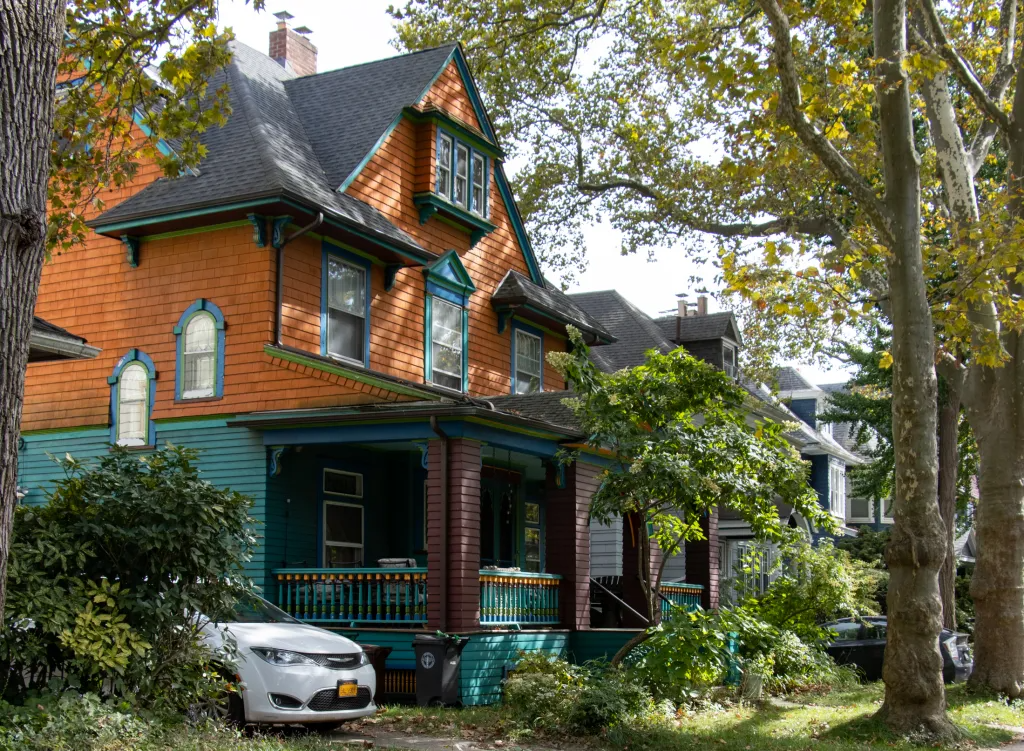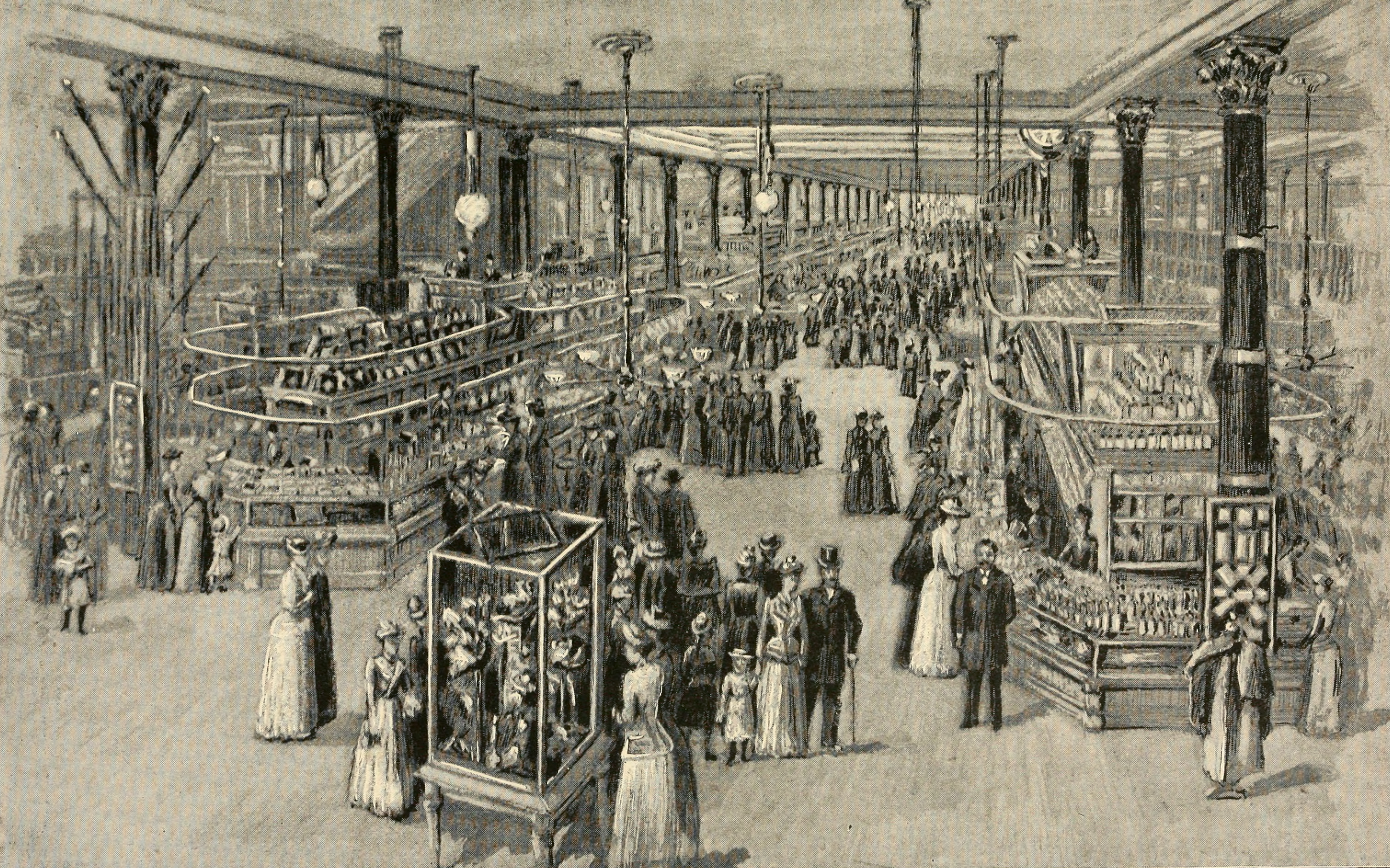Real Estate: The New Obscenity?
The lead article in the real estate section of The New York Times this weekend attempts to make the case that real estate has gone from Topic No. 1 to Topic Non Grata in the last six months. Nobody wants to talk about it,” The Times quotes one hedge fund manager as saying. We’re not…

 The lead article in the real estate section of The New York Times this weekend attempts to make the case that real estate has gone from Topic No. 1 to Topic Non Grata in the last six months. Nobody wants to talk about it,” The Times quotes one hedge fund manager as saying. We’re not so sure that’s the case. People may be acting more discreetly when they bring it up, but, in our experience, it’s still just as much on everyone’s minds as before, although now, instead of being obsesses with how much the value of their house has gone up, it’s all about how far the value has fallen. Have you noticed a decrease in the amount people are talking about real estate or just a different tone?
The lead article in the real estate section of The New York Times this weekend attempts to make the case that real estate has gone from Topic No. 1 to Topic Non Grata in the last six months. Nobody wants to talk about it,” The Times quotes one hedge fund manager as saying. We’re not so sure that’s the case. People may be acting more discreetly when they bring it up, but, in our experience, it’s still just as much on everyone’s minds as before, although now, instead of being obsesses with how much the value of their house has gone up, it’s all about how far the value has fallen. Have you noticed a decrease in the amount people are talking about real estate or just a different tone?
Don’t Even Say the Words [NY Times]
Photo by solupine





“Why is Citibank hiding 1 trillion dollars in level 3 assets? Why did the clowns change ‘Mark To Market’ rules to ‘Make believe now please rules’????”
We’re waiting, 10thStreetReno. Care to respond? C’mon, take a break from the laminate flooring snap-on! Why the rule change?
***Bid half off peak comps***
Maybe someone posted this, but I haven’t come across it. From The Brookyn Paper:
The Brooklyn real-estate bust continues
By Ben Muessig
The Brooklyn Paper
The collapsing economy is being blamed for a 35-percent drop in the number of properties sold in the borough’s once-booming housing market in the first quarter of this year compared to the last part of 2008.
Worse, the first quarter of 2009 is off 57 percent compared to the first quarter of 2008.
The bad news — contained in a new report from the real-estate consulting firm Miller Samuel, which conducted the study for the Prudential Douglas Elliman real-estate firm — follows a trend that started last year, when the economy imploded, mostly because of a housing market bust.
The new report shows that sales plunged in all property types and extended from neighborhoods like Williamsburg and Greenpoint (which reported a 40.8-percent decline in sales compared to the previous quarter), the Brownstone Belt (where the number of sales plunged 46.7 percent compared to the previous quarter), and Bay Ridge (which logged a 32.3-percent fall in sales compared to the previous quarter).
The drop in sales was caused in part by unrealistic asking prices, according to researchers.
“Sellers are significantly behind the market,†said Jonathan Miller, president of Miller Samuel. “They are looking at the last high water mark in their building or in their neighborhood and pricing at that point, but the market has changed quite a bit over the past year or year and a half and there is a real disconnect.â€
Broker Allen Barcelon who specializes in Boerum Hill — a neighborhood where the number of sales dropped by 56.3 percent compared to the previous quarter — agreed that the price tags are a big part of the problem.
“People are pricing them wrong — there has to be a drastic reduction in asking prices,†said Barcelon, who urged sellers to ask for 15 percent less than estimated pre-crash property values (though, obviously, few are eager to do that). “And you better clean it, paint it, and make it look beautiful if you want it to sell.â€
The drop in the number of sales was coupled with declines in sales prices compared to the previous quarter, with plunges of 20.2 percent in brownstones and 11.5 percent in North Brooklyn condos — two markets that insiders predicted would weather the storm.
The borough’s real-estate experts weren’t afraid to pin some of the blame on the contracting credit market.
“The problem is that the mortgage environment is so brutal right now,†said broker Chris Havens. “The banks lent too much, now they are lending too little.â€
Looser lending might not bring the housing market back to its peak, but it could result in more closures, according to Havens.
“There are definitely more customers than sales — and there is certainly a lot of product out there,†he noted.
Unfortunately for sellers, the market’s recovery might remain a long way off.
Researchers did observe an increase in sales towards the end of the quarter, but they tempered any optimism by linking the upswing to the housing market’s traditional spring uptick. Next quarter’s report will show whether this year’s uptick was stronger or weaker than previous years’.
Doesn’t this article kind of contradict itself? (Ha ha ha ha ha…that was hilarious, no?)
Okay, here we go…
“The Times quotes one hedge fund manager as saying…”
Correction: [former] hedge fund manager
“…many of us on team Bull that have other subjects to talk about and add to…”
Like the article said, ‘Nobody wants to talk about it’.
“Let the fighting begin.”
Wouldn’t be a fight. It’d be a first round knockout.
“Sure, in the bubble, there was the occasional ‘can you believe what that house on __ street sold for?’ which, of course, doesn’t happen now.”
Actually, it does happen now. People still overpay. It’s a lot more impressive now (for the sellers). Hence the gawking more intense.
“I agree that the source should always has to be considered when taking a view on the veracity of information but you also have to ask yourself whether you would be particularly surprised if the story turns out to be true?”
Very good point (or question, what’s with the ‘?’). Naysayers try to hypnotize and confuse with smoke and mirrors. If even a sex offender told me there was a man with a gun out, I’d listen.
“Time mag is reporting ‘Stress Test Results: Most Banks Likely to Pass’ so probably no need to run to your bank this morning.”
Time Mag said ‘no housing bubble’. Time Mag said ‘contained subprime problem’. Time Mag said ‘no recession’. Time Mag says this. Time Mag says that. Herd mentality and the madness of crowds never ceases to amaze me. Who do you think controls these media outlets? It’s propaganda, sheepfeed.
“When something hits the cover of Newsweek you can be sure that its fully discounted by the market and its time to think contrary to the article!!!!”
A rare commonwall of agreement between DIBS and myself.
“if real estate prices move up or down 10%, people will begin to yap about it (good or bad)”
IF (down)??? Yap yap yap…(a continuation, not a beginning)
“One of the associate executives and her boyfriend bought a two-family co-op on Irving Place a week ago she got a really good price…”
This early in the crash? Probably not. I bet load blown. Revisit in a year.
Outstanding find, zuleika at April 20, 2009 12:40 PM! That is bullseye. Dead center. Hopelessly trying to sustain the unsustainable was exactly the cause of the Great Depression and Japan’s Lost Decade (zombie banks, 28 Quarters Later) and is exactly why we have entered the playout of a similar fate if not worse. Very scary. You have to understand this and prepare yourself and your families.
Back to the leak above. This is HUGE.
Off to my bank while the line is still short…(Just kidding but not really. I’m pankicking!) Fractional reserve should be called fragilly reserved.
***Bid half off peak comps (relatively bullish tagline?)***
“Fair enough – but don’t go on about the SFAS 157 disclosure and level 3 assets when it’s clear you don’t know what you are talking about. The level 3 (unobservable assets) disclosure tells you little if anything of a financial firms impending writedowns or financial health.”
Oh no????!! Ok genius- Why is Citibank hiding 1 trillion dollars in level 3 assets? Why did the clowns change “Mark To Market” rules to “Make believe now please rules”????
When not if those Level 3 Assets get a price it will take down the whole financial system!
I love intellectual idiots like you because you will get vaporized in the explosion of the Mutant Asset Bubble.
10thStreetReno You better hurry up on that flip, ROTFLMMFAO!!!!
Houston to retards: The US Banking System Is INSOLVENT!!!!!!!!
The What
Someday this war is gonna end..
As long as we’re doing consider-the-source here, we should do the same for James Howard Kunstler. Like many commentators out there, he sees the financial crisis as justifying his own personal hobbyhorse: reorganizing American life around small, self-sustaining, walkable towns. (Why does the bank crisis call for the downscaling of big cities? Because all things lead Kunstler to the conclusion that all Americans, like James Howard Kunstler, should move to small towns in upstate New York or the equivalent.) He’s advocated that for decades, and over the years has also used–among other things–the Peak Oil theory and the Y2K “crisis” as an argument for it.
Mind you, I’m not saying he’s wrong about the banks and the economy. For all I know he’s right. But he is someone with a strong motivation to find evidence to support a particular conclusion.
Who is James Howard Kunstler? Apparently we agree.
Also:
*We need health care.
*We need regulation — break up the banks, bring back usury laws.
What. I can take your personal thoughts on the direction of real estate prices. Fair enough – but don’t go on about the SFAS 157 disclosure and level 3 assets when it’s clear you don’t know what you are talking about. The level 3 (unobservable assets) disclosure tells you little if anything of a financial firms impending writedowns or financial health. Any first year analyst will tell you the disclosure has several flaws.
As for everything being priced at par – that’s simply not correct to say. No doubt there’s more pain to come, but given the US govt has given the financial system it’s backing it’s not going to fail. Worst case Govt takes equity position, cleans things up and then sells it stake. that may take a long time but it will not be the end of civilisation.
“ENY do you mean two family house?”
Um, I SHOULD have said “two-bedroom co-op.” I was rushing to the conference room to get in on the FREE lunch today!
US good at making stuff of mass destruction – physical and financial types